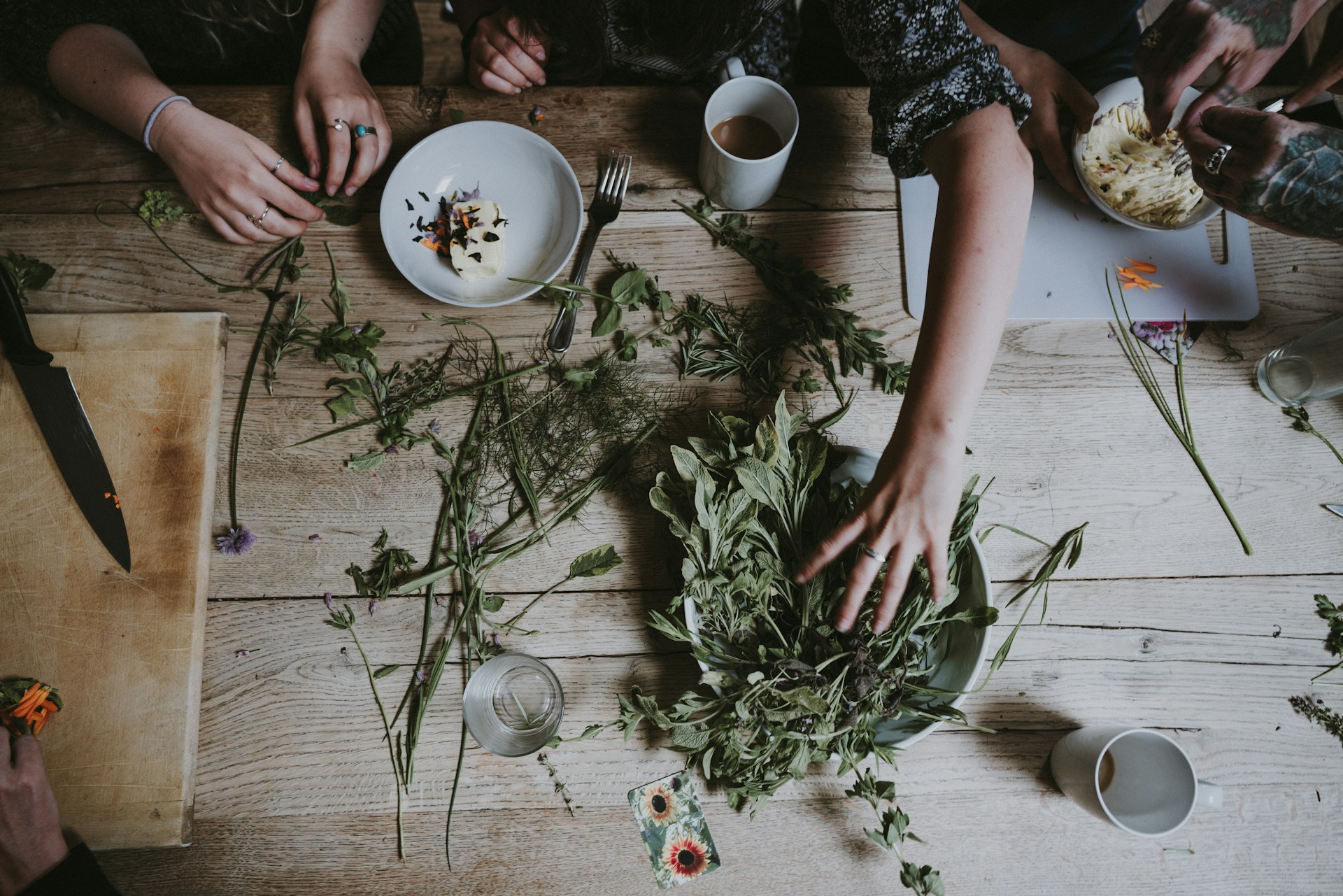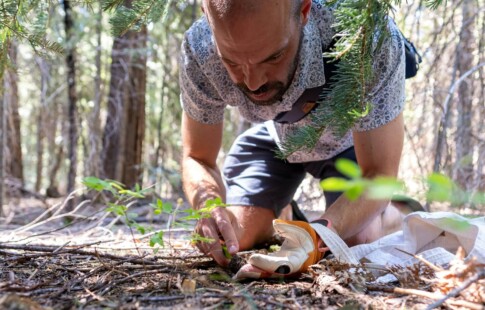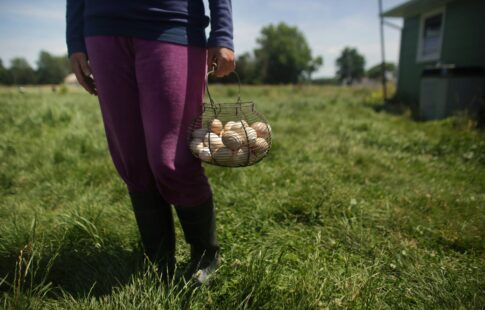
Unlocking Nature’s Pharmacy: How to Make Herbal Remedies for Home Healing
We are reader-supported. When you buy through links on our site, we may earn affiliate commission.
From Ancient Egypt to Ancient China and traditional Ayurvedic practices in India, herbs have been integral in medicinal treatments. Even today, numerous pharmaceuticals are derived from natural ingredients, mainly from various types of plants. Learning how to make herbal remedies at home is straightforward and can provide a secondary aid to conventional medicine, promoting health and vitality.
From Garden to Medicine Cabinet: The Power of Plants
Experts have traced therapeutic plant-based remedies to 60,000 years ago. In addition to people continuing to use herbs and other plants today to treat themselves, the pharmaceutical industry heavily relies on plant ingredients in lab-made medicine. The World Health Organization says 80% of the global population still relies on conventional medicine and expects the global demand for medicinal plants to reach $7 trillion by 2050.
The oldest herbal medicine records — the Ebers Papyrus — were discovered in Egypt in the 19th century, comprising remedies to improve well-being, including repelling insects, aiding digestion and treating skin problems, eye issues and diabetes. Egyptians relied on several familiar ingredients, such as garlic, fennel, thyme and aloe.
Herbs have also been central in Ayurvedic pharmacology, dietetics, yoga and meditation, massage and detox therapy. Common herbs include turmeric, ginger, ashwagandha and neem, each recognized for their anti-inflammatory and antimicrobial properties.
According to various studies, the following herbs may be powerful assets in remedying several health problems:
- Chamomile: Helps with anxiety and relaxation, reduces swelling and heals wounds.
- Ginseng: Enhances energy, sex drive and bodily balance.
- Ginger: Relieves nausea and upset stomach.
- Valerian: Aids better sleep and reduces anxiety.
- Aloe vera: Treats burns, insect bites, inflammation, inflammatory bowel syndrome, acne and psoriasis.
- Saint John’s wort: Alleviates mild to moderate depression.
- Milk thistle: Relieves liver problems, lowers cholesterol and helps decrease cancer cell growth.
- Parsley: Lowers blood sugar, prevents cancer and improves bone density.
- Rosemary: May treat headaches and migraines, sleep problems, depression and inflammation.
Of course, it is best to consult with a doctor before taking herbal medicines and supplements, as they may not be safe for some individuals. For instance, ginseng, aloe vera and Saint John’s wort may be toxic for those with diabetes, with adverse effects on blood sugar.
How to Grow Herbs at Home
Herbs are among the easiest plants to grow at home — some even thrive indoors. Determine how tall they’ll grow — for instance, sage, mint and rosemary grow quite large and may do better in a garden, while fennel and basil grow successfully in a container in the sun.
Most herbs are cultivated in four to six weeks, at which point they can be transplanted outdoors. Just be sure the last frost has passed so they don’t freeze.
Seeds germinate best when the soil is loose and drains well, and they receive enough sunlight. If growing herbs indoors, place the pots on a sunny windowsill. Likewise, it’s essential to keep the soil moist but not saturated, allowing it to dry out between watering — test the soil’s dryness by sticking your finger in it.
Essential Items Needed for Creating Herbal Treatments
Once you’ve grown organic, high-quality herbs, you’ll need to gather essential items to make herbal remedies for healing purposes. You might need the following materials:
- Carrier oils like olive oil, coconut oil and almond oil
- High-proof alcohol — vodka and brandy — to extract herbal properties
- Distilled water for teas and infusions
- Glass jars, bottles and Boston round bottles, preferably dark
- Strainer to separate infusions, teas and tinctures from the plant ingredients
- Measuring spoons and cups
- Mortar and pestle to create powders and pastes
- Labels for marking concoctions
These items will make it easier to create effective, safe herbal anecdotes at home. However, before starting, research how to use herbs, their modalities and side effects. It’s also important to be aware of potential allergies and interactions — small doses and applications are best to test for irritations.
How to Make Herbal Remedies for Common Ailments
There are many at-home herbal remedies you can try to heal common ailments and conditions. Although they may not offer a cure, they can deliver much-needed relief. Here are a few recipes you might find interesting.
1. Herbal Tea for Digestion
Combine 1 teaspoon each of dried peppermint, fennel seeds and chamomile flowers. Boil water and steep the herbs for five to 10 minutes or until the water reaches your preferred strength. Drinking this tea after meals will help you digest food more efficiently.
2. Anti-inflammatory Tea
Slice a 1-inch piece of ginger and boil it in water for five to 10 minutes. Mix in a 1/2 teaspoon of turmeric and strain into a mug. If you prefer it sweet, add a teaspoon of honey.
3. Scalp Oil for Hair Growth
Infuse 1/4 cup each of dried rosemary leaves and lavender buds in a 1/2 cup jojoba oil, strain and massage into the scalp. The treatment may promote hair growth.
4. Detox Tea
Combine 1 teaspoon each of dandelion root, nettle and burdock root in boiling water for five to 10 minutes. Strain the liquid into a cup and drink once daily to help detox the body and reduce inflammation.
Studies have shown that dandelions have long been used to treat liver and digestive problems and gout, particularly in traditional Chinese medicine.
5. Sleep Salve
Gather 1/4 cup of dried chamomile flowers and lavender buds, 1/2 cup of coconut oil and 2 tablespoons of beeswax. Melt the coconut oil and infuse the herbs, then strain the liquid. Add beeswax before pouring the mixture into a jar to solidify. Apply some sleep salve to your pressure points or hands before bed.
6. Sore Throat Gargle
Steep 1 tablespoon each of dried sage and thyme in warm water for five to 10 minutes. Strain the herbs and add a tablespoon of apple cider vinegar. This will be potent but can soothe a sore throat when gargled.
Heal Your Mind and Body With Herbal Remedies
Herbal remedies are recommended as a complementary treatment to common ailments. When used correctly, they have powerful healing effects for a healthier mind and body. Try making herbal remedies at home with the herbs you grow in your garden, and use them to promote optimal well-being.
Share on
Like what you read? Join other Environment.co readers!
Get the latest updates on our planet by subscribing to the Environment.co newsletter!
About the author
Grace Waters
Always inspired by the natural world around her, Grace grew up exploring tide pools and hiking mountain trails, developing a deep appreciation for biodiversity and conservation. Now, Grace works as the Senior Editor of Environment.co where she covers topics related to emerging clean technologies, zero-waste initiatives, and the intersection of environmental policy and everyday living.





